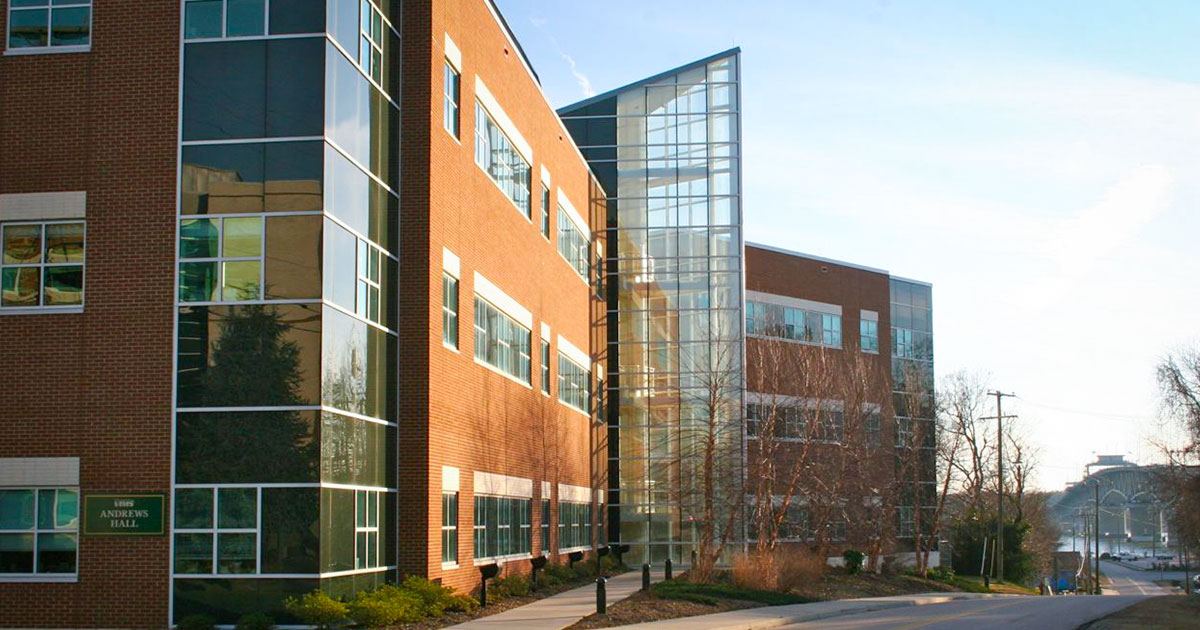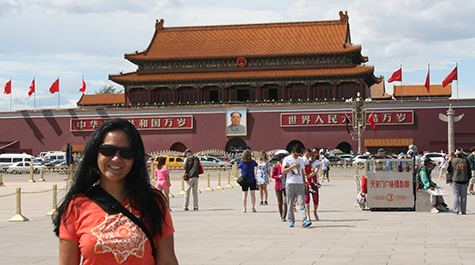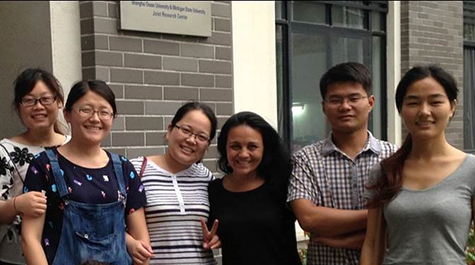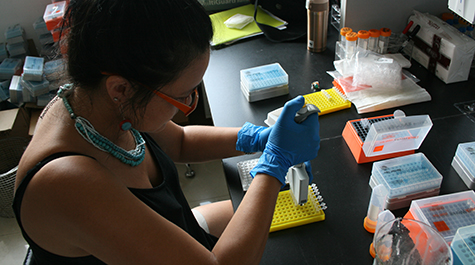Roa-Varón represents international students at VIMS & abroad
According to Adela Roa-Varón, success in academia requires the ability to find and select the best training opportunities, even if they are on the other side of the world.
A Ph.D. student at the Virginia Institute of Marine Science, Roa-Varón has traveled the globe pursuing her research. She says her experiences as an international student combined with her passion for science has opened her eyes to the importance of international collaborations.
“Research at an international level helps gain new perspectives in your field of study, and makes you aware of the potential for different approaches,” says Roa-Varón. “It also facilitates communication that goes beyond language differences by learning others’ perspectives.”
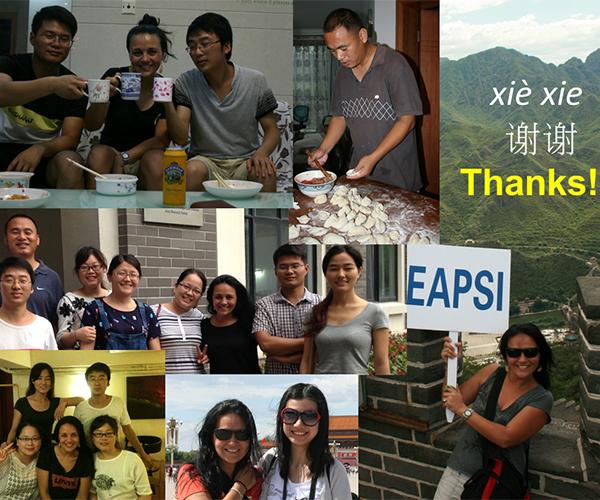 Originally from Bogotá, Colombia, Roa-Varón is the international student representative in William & Mary’s School of Marine Science at VIMS and a member of W&M’s International Student Advisory Board. As such, she plays an important role in increasing community awareness of other cultures and expanding the perspectives of those around her.
Originally from Bogotá, Colombia, Roa-Varón is the international student representative in William & Mary’s School of Marine Science at VIMS and a member of W&M’s International Student Advisory Board. As such, she plays an important role in increasing community awareness of other cultures and expanding the perspectives of those around her.
Roa-Varón has been collaborating with scientists on an international level since her time as an undergraduate at the Universidad Nacional de Colombia, when she worked with Dr. Tomio Iwamoto at the California Academy of Sciences and identified mid-water larvae at the Museum of Comparative Zoology at Harvard. “These opportunities helped me decide what to pursue for my graduate research, set up international collaborations, and exposed me to different working environments,” she says.
Roa-Varón brought her worldliness to another level this summer during a two-month stint in Shanghai, China funded by the National Science Foundation’s prestigious East Asia and Pacific Summer Institute for U.S. Graduate Students. EAPSI is a residency program that provides selected students in science, engineering, and education first-hand research experience with a host scientist in Australia, China, Japan, Korea, New Zealand, Singapore, or Taiwan.
Roa-Varón’s dissertation research—under the mentorship of professor Eric Hilton—focuses on resolving the evolutionary relationships among and between hakes and other related fishes such as cod and haddock. She says the EAPSI experience gave her the opportunity to learn a specialized technique in molecular genetics that she is using for her dissertation, and from one of the technique’s pioneers—Dr. Chenhong Li, a professor in the College of Fisheries and Life Science at the University of Shanghai.
“During my two months in China, I learned the molecular technique, but also collected data I hope can be incorporated into my dissertation as a separate chapter,” says Roa-Varón. “Additionally, I had the opportunity to collaborate with a graduate student in Dr. Li’s lab, and expect at least two publications as a result of these cooperative efforts.”
The molecular tool that Roa-Varón mastered during her time in China—a protein-coding, gene-capture approach in conjunction with Next Generation Sequencing (NGS)—will help clarify the relationships among different species of hake, knowledge that will help managers better manage hake stocks. “Some hake species are of conservation concern, and their unresolved alpha taxonomy and the lack of diagnostic characters have led to mixed-species in landings data, making management and conservation difficult,” says Roa-Varón. “I hope the results of my dissertation will be useful to fisheries management.”
Hake is a popular seafood in Europe, particularly in Spain, but overfishing and other factors have sharply reduced hake stocks in the southerly waters where most reside.
Challenges and rewards of international research
In her role as an international ambassador at W&M and VIMS, Roa-Varón tries to assist as much as possible with the activities organized by the Reves Center for International Studies and the Confucius Institute, and says she began searching for Chinese classes through the Confucius Institute’s offerings as soon as she submitted her proposal for the EAPSI fellowship.
“I was lucky that they were offering an introduction to the Chinese language,” says Roa-Varón. “It was very helpful for me to learn some basic expressions, not only to show respect by addressing people in their own language, but also because it helped break cultural barriers.”
While she says the class helped, Roa-Varón reveals that the language barrier was one of the biggest challenges she faced. “The language issue impacted every aspect of life, and the challenges started immediately after I got off of the plane,” she says.
Roa-Varón describes the challenge of not knowing the language as the closest she has ever felt to being illiterate. “I couldn’t talk, write, or read,” she says. “It makes you feel vulnerable, and it forces you to trust others more than you ever thought you would have to.”
While she admits her travel experience was difficult at times, Roa-Varón says China is one of the world’s most fascinating civilizations, and everyday brought exciting new experiences. Aside from the amazing sights and cuisine, Roa-Varón says one of the most lovable social norms in China is everyone’s eagerness to help, and even the individuals who spoke only halting English would try their hardest to assist her beyond her expectations.
“Research experiences abroad not only foster necessary skills in a given field, but they also lay the foundation for establishing a global network of collaborators,” says Roa-Varón. “You have the opportunity to get in contact with a new group of scientists, and it helps to break down barriers between fields to build common ground.”
“I am sincerely honored and grateful to have been awarded with the EAPSI fellowship,” she says. “It encouraged me to keep moving forward with my research, provided me the opportunity to experience a different culture, and allowed me to discover and enjoy China. Moreover, I have grown as an individual, becoming even more independent and culturally aware.”
